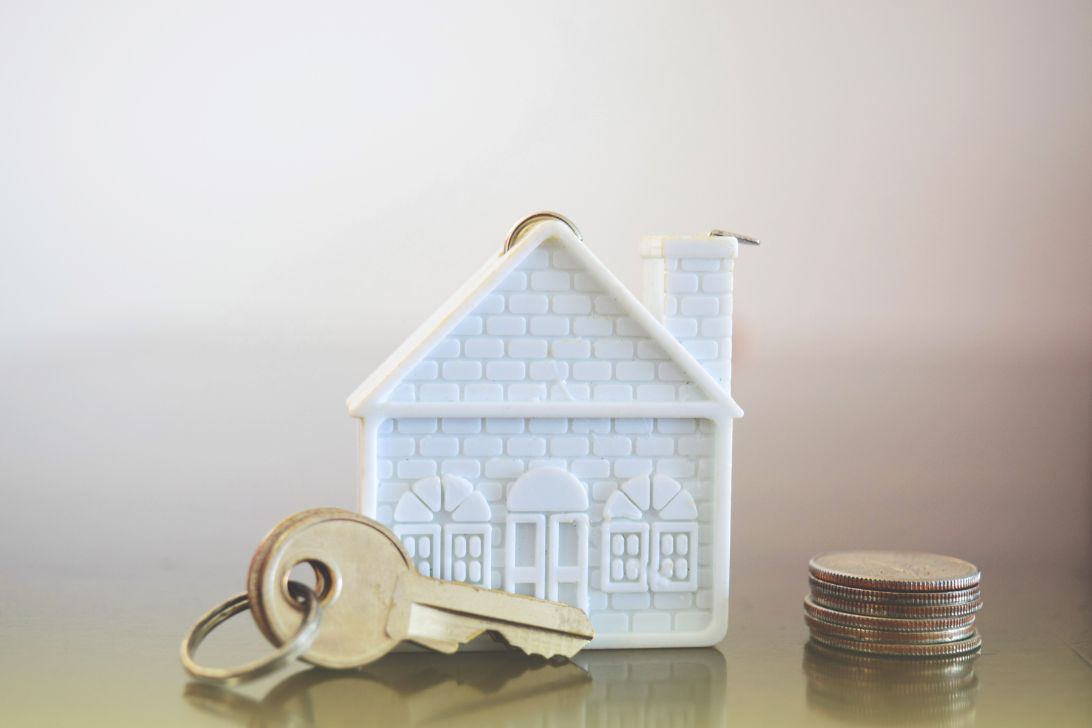What Happens to Real Estate During Inflation?
As we see inflation infecting all of areas of the economy you might wonder about the inflation impact on real estate. Inflation affects owners, sellers, and buyers of real estate in different ways. This post will help you understand how inflation in real estate affects you depending on your seat at the table.
What is Inflation?
Inflation is the measure of how much the costs of goods or services costs over time. Inflation typically occurs when more money becomes available for a good or service. More money is introduced into the market by either adding money to the system or lowering interest rates making it more attractive for buyers to go into debt now and complete a purchase today.
Real estate is not immune from inflation. Inflation in real estate is caused by the same factors as any other good or service. Additionally, an imbalance of low supply against a high demand for homes will also cause inflation in real estate.
What Causes Inflation?

Many forces cause money supply to increase and therefore can cause inflation to occur.
- Money Production – As more money flows around the economy, sellers of goods and services will likely raise prices causing inflation. When the Federal Reserve introduces more money in the monetary system this will occur.
- Wage Growth – When there are too few employers to fill too many positions employers will increase wages to attract employees. As wages increase business owners will raise prices to pass the added labor costs on to their customers.
- Supply Chain & Production Interruptions – Scarcity has a huge effect on the price of a good or service. Supply chain and production interruptions will cause prices to increase. The longer they last the higher the increase, too.
- Demand – Like scarcity, demand is a factor that weighs on the price of goods. The more in demand a product is, the higher the price will go.
- Easy Borrowing Terms – Times of easy credit bring about higher prices. If buyers can borrow at low interest rates and more borrowers can qualify to borrow, a surge in prices will occur for the goods those buyers are buying.
How Does Inflation Affect Real Estate?

It is important to know what inflation does to real estate. Real estate is a good, and it faces the same market pressures as other goods. Therefore, real estate is not immune from inflation.
When the economy dictates the time is right to buy a home, home prices will inflate. The characteristics in the market most likely to cause rapid real estate inflation include:
- Low supply of homes
- High number of active homebuyers
- Low mortgage interest rates
The effect of inflation on property values affects all of us.
Income Generating Asset
Inflation in real estate affects landlords and real estate investors. Owners of rental property take the risk of buying and renting out a property in order to make a return. Real estate investors are seeking a return greater than the risk-free rate in the market.
If an investor believes he or she will pay more for a home that can deliver the greater return on the investment. Thus, home prices will increase as real estate investors chase this yield.
Limited Amount of Real Estate
Another cause of inflation in real estate is its limited supply. Building homes is a time consuming and cash intensive process.
Building more homes requires commitments from many parties. Local government needs to approve the development. A builder must be found. Most importantly, a buyer needs to be at the other end ready to buy the home. It is difficult for home builders to meet supply needs quickly in a pinch.
On the other hand are owners of existing homes. However, most people own just one home and live in it. Therefore, just as soon as they try to sell they now need somewhere to live. This sets up a classic catch-22 situation.
Housing Construction Costs Increase
Though I just spoke about builders, builders have another challenge with inflation in real estate. At times when prices are rising quickly it is difficult for a builder to forecast his or her final cost to have the home built.
Additionally, as the builder confronts increased materials and labor costs the builder will raise the price of the home. All of this makes for a moving target for both homebuyers and home builders. This actually slows the new construction business.
Homeowners
Inflation in real estate typically benefits existing homeowners. As homeowners see the value of their homes increase they can have greater access to capital. This is because homeowners have a greater ability to complete a cash-out refinance.
A cash-out refinance is when a homeowner borrows more against his or her current home. The funds can be used to pay off higher interest debt or make improvements to the home.
Buyers

Buyers suffer quite a bit as inflation in real estate increases. Buyers are facing the substantial need of having a place to live but are confronted with higher prices. This puts a squeeze on homebuyers.
Many homebuyers may have to make concessions in the face of higher home prices. This can include purchasing a home in a different area, a smaller home, or a home with fewer features.
Sellers
Home sellers can benefit from inflation in real estate. Home sellers in an inflationary market are rewarded with a higher sale price compared to previous times. However, there is a catch-22 for home sellers.
Once you sell, now where are you going to go? If you are moving to an area of a segment of the housing market not experiencing inflationary pressures the home seller can get quite a windfall. On the other hand, the seller may lose the inflationary gain once he or she buys a home.
Investors
Real estate investors are affected by inflation in real estate. This typically occurs in one of two ways.
The first is the investor’s portfolio of homes has now become more valuable. This could inspire the investor to sell off the portfolio. Alternatively, the investor may decide to refinance the homes in a cash-out refinance.
Another typical effect of inflation in real estate for investors is they can increase their rent rate. If real estate is surging, and buyers are running out of options, the investor will begin thinking about increasing the amount of rent charged for the property.
Prospective Investors
Inflation in real estate is challenging for prospective investors. If you are starting out or building an investment portfolio during an inflationary time you need to be defensive. Do some extra due diligence to make sure the property is a worthwhile investment. Additionally, you may just have to accept a low return on investment for a period of time.
How to Use Real Estate As A Hedge Against Inflation and Recession

Real estate can be an effective hedge against inflation. If you are a person with money that is not performing well a real estate investment could help you generate a better return and keep you ahead of inflation. These are the ways real estate can hedge against inflation:
- Rising Rents – As everything becomes more expensive in an inflationary environment so will rent rates. Continue to increase the rent rate on your property in order to hedge against inflation.
- Asset Value Increases – Those who own assets benefit the most from inflation. Therefore, if you own multiple real estate properties and inflation is occurring it is likely the properties are worth more than what you paid.
- Cash Out Refinances – As the real estate you own increases in value and the debt is paid down you have equity. Inflation makes the property worth more and gives you passive equity. If interest rates drop you may be able to refinance the property and take a cash-out refinance.
How Can Real Estate Protect Me from Inflation?
There are ways to insulate or defend yourself from inflation using real estate. This needs to be understood from both owning a primary residence and owning investment real estate.
As a homeowner, you are more protected from inflation than a non-homeowner. Non-homeowners are paying rent which will increase as inflation hits. Homeowners, on the other hand, locked in their purchase price and interest rate when they bought. Therefore, the housing costs are more fixed and insulated from inflation.
Investors can use real estate during inflationary times to defend against. Real estate prices during inflation typically increase. Real estate investors may find putting capital into a real estate investment performs above the rate of inflation.
Should You Invest in Real Estate During Inflationary Times?
Investing in real estate during an inflationary period is not necessarily a bad idea. Data indicates home real estate prices will increase continuously. Looking back decades you can see real estate values typically increase. Purchasing investment real estate during a high inflation period may mean soon after the purchase the inflation will stop.
However, immediately after high inflation there could be a lull and even depreciation. Therefore, if you are working with a short-term time horizon such as less than five years, investing in real estate during a time of high inflation may not be the best thing to do at this time.
How to Get Started Purchasing Rental Real Estate

The best way to begin purchasing rental real estate is to be prepared to get started. That way once the right property comes up for sale you can buy it. These tips will help you get ready to start buying rental real estate.
Take a Look at Your Finances
The first step is to get your finances in order. If you do not have any savings and are living paycheck to paycheck buying real estate probably isn’t the right fit. Lower your debt to income ratio and increase your credit score. Target having a credit score of at 680.
Consider BRRRR Financing
Consider starting your rental portfolio using the BRRRR financing method. This is a merger of both flipping and keeping the real estate for long term rental purposes.
BRRRR financing stands for buy a property, repair and rehab the property, rent out the property, refinance the property, and repeat. The BRRRR method has added steps but is a successful model to help many real estate investors get started.
Buy When You Feel Ready
Don’t buy a property just to buy one. FOMO (fear of missing out) is the worst thing one can do. Instead, start by getting all of your finances in order. Then, establish your goals as a real estate investor. Then, buy a property, but only buy a property which makes sense based on your finances, abilities, and goals.
Conclusion
Inflation does affect real estate markets. There are some winners and there are some losers when inflation takes hold on the real estate market. It is a challenging situation for sure.
Here at the Quadwalls Real Estate Team we help people make better decisions when buying or selling homes. If you need to sell or buy a home in Northwest Indiana we can help you. Take the first step and tell us what you are looking for. We made that really easy with our Quadwalls HomeFinder Assistant tool. It only takes 3 minutes and is kind of fun. Click here to complete your HomeFinder Assistant today!
If you are looking for a Northwest Indiana real estate with low real estate commission fees stop right here. We offer a full-feature home selling service and low real estate commission fees. Click here to learn all about our home selling services in Northwest Indiana and see our low, low rates.
FAQ
Quadwalls is here to help you understand more about real estate. Here are some answers to questions about inflation in real estate.
Is inflation good or bad for real estate?
Inflation in real estate is good for the homeowners and sellers but bad for homebuyers. Rising real estate values help homeowners have a higher equity position and a greater asset value. Sellers can realize a larger gain on their home. Homebuyers do not when when real estate prices are inflating because they will be paying higher prices.
What happens to mortgages during inflation?
Mortgages are relatively unaffected by rising real estate inflation. If anything, mortgage lenders are more likely to want to refinance existing loans. Homeowners with a fixed rate mortgage will not see a change to their mortgage due to inflation in real estate.
 Updated: March 29, 2023
Updated: March 29, 2023  754
754  12 min
12 min












